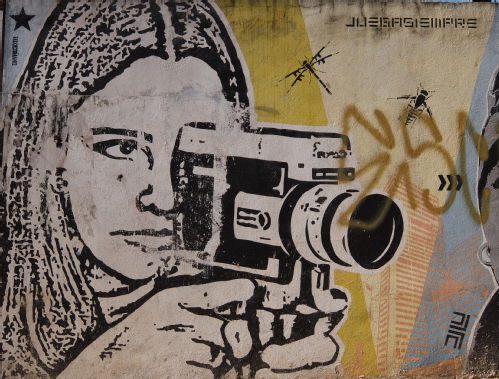EN9C7 Critical Theory, Culture, Resistance

EN9C7 Critical Theory, Culture, Resistance
Reading list and schedule for 2022-23
T1
Convenor: Prof Paulo de Medeiros
Office hours:
Seminar Venue and Time: FAB 1.07 Thursday 15:00 - 17:00
Module aims: This module aims at providing students with a solid understanding of key elements in critical theory from the original framework of the Frankfurt School to contemporary developments. Students will relate critical theory to social and political issues in historical context in the present. In the process they will develop an understanding for the imbrications of race, gender, and class issues in a theoretical perspective.
***
Reading List: Digital ResourcesLink opens in a new window
Week 1: Introduction. Culture and Dialectics. Assigned Texts: Theodor W. Adorno. 'Culture Industry Reconsidered' in New German Critique 6 (1979) 12-19. Fredric Jameson. 'The Three Names of the Dialectic' in Valences of the Dialectic. 3-74.
Suggested, optional, further reading: Jacques Derrida. “In the Name of the Revolution: the Double Barricade (impure ‘impure impure history of ghosts)”. In Specters of Marx. Routledge, 1994. 118-155.
Week 2: “Culture Matters”. Assigned Text: Rob Nixon. “Introduction”. In Slow Violence and the Environmentalism of the Poor. Harvard UP, 2011. 1-44. Judith Butler. “Survivability, Vulnerability, Affect”. In Frames of War. 33-62.
Week 3: “Politics of the Damned”. Assigned Text: Phillip Mirowski. “One More Red Nightmare: The Crisis That Didn’t Change Much of Anything”. In Never Let a Serious Crisis Go to Waste: How Neoliberalism Survived the Financial Meltdown. Verso, 2013. 11-44.
Week 4: Anne Enright. The Gathering. Vintage, 2007. Joe Cleary. “Capital and Culture in Twentieth-Century Ireland: Changing Configurations” in Outrageous Fortune. Field day Publications, 2006. 76-110.
Week 5: “We the People”. Excerpts from Étienne Balibar. We, the People of Europe? Princeton UP, 2003. Press clippings. Theodor W. Adorno. Aspects of the New Right-Wing Extremism. Polity, 2020.
Week 6: “Cri-ti-que”. Assigned texts: Étienne Balibar. “Critique in the 21st Century”. Radical Philosophy: Philosophical Journal of the Independent Left 200 (2016). Wendy Brown. ‘Introduction’ to In the Ruins of Neoliberalism. The Rise of Antidemocratic Politics in the West. Columbia UP, 2019, 1-22. Selections from Invisible Committee. Now. Semiotext(e), 2017.
Week 7: Is the Post- in Postcritical like the Neo- in Neoliberal?” Assigned Texts: Anahid Nersessian. 'For Love of Beauty?' in New Left Review 13/134 Jan/Apr 2022, 179-196. Wendy Brown. ‘No Future for White Men: Nihilism, Fatalism, and Ressentiment’ in In the Ruins of Neoliberalism. The Rise of Antidemocratic Politics in the West. Columbia UP, 2019, 161-188.
Suggested background reading: Kwame Anthony Appiah. “Is the Post- in Postmodernism the Post- in Postcolonial?” Critical Inquiry 17.2 (1991): 336-357
Week 8: “Postimperial Cities”. Assigned Texts: Bill Schwartz. “Postcolonial Times: The Visible and the Invisible” in Felix Driver and David Gilbert, eds. Imperial Cities: Landscape, Display, and Identity. Manchester University Press, 1999. 268-273. David Harvey. “London 2011: Feral Capitalism Hits the Streets”. In Rebel Cities: From the Right to the City to the Urban Revolution. Verso, 2012. 155- 158.
Week 9: “Repeating Islands”. Stuart Hall. “Through the `prism of an Intellectual Life”. Essential Essays. Vol. 2: Identity and Diaspora, Duke University Press, 2018. 303-323. doi.org/10.1215/9781478002710. Angela Davis. “We Have to Talk about Systemic Change’. Freedom Is a Constant Struggle. Haymarket Books, 2016. 32-50. Suggested further reading (no digital access): Paul Gilroy. “The Crisis of ‘Race’ and Raciology’. In Against Race. Harvard UP, 2001. 11-53.
Week 10: “We Are All Mad Here”. Shakespeare. King John. The Oxford Shakespeare, 2008. Paula Rego, “St. Margaret” at Durham Cathedral, 2002. Assigned Texts: Excerpts from Theodor Adorno. Minima Moralia. Verso, 2006. Jacques Derrida. “Before the Law”. Acts of Literature. Routledge, 1992. 181-220.
***
Selected Bibliography:
Adorno, Theodor. Minima Moralia. 2006.
Appiah, Kwame Anthony. “Is the Post-in Postmodernism the Post- in Postcolonial?” Critical Inquiry 17.2 (1991): 336-357.
Arendt, Hannah. On Violence. 1970.
Balibar, Étienne. We, the People of Europe? 2003.
Balibar, Étienne. Citizenship. 2015.
Balibar, Étienne. “Critique in the 21stCentury”. Radical Philosophy: Philosophical Journal of the Independent Left 200. 2016.
Brown, Wendy. Undoing the Demos: Neoliberalism’s Stealth Revolution. 2017.
Browne, Simone. Dark Matters: On the Surveillance of Blackness. 2015.
Butler, Judith. Frames of War. 2009.
Derrida, Jacques. Spectres of Marx. 1994.
Dick, Phillip K. The Man in the High Castle. 1962.
Docherty, Thomas. Universities at War. 2014.
Driver, Felix and David Gilbert, eds. Imperial Cities: Landscape, Display, and Identity. 1999.
Felski, Rita. The Limits of Critique. 2015.
Harvey, David. Rebel Cities: From the Right to the City to the Urban Revolution. 2012.
Invisible Committee. Now. 2017.
Jameson, Fredric. The Political Unconscious. 1981.
Jameson, Fredric. A Singular Modernity: Essay on the Ontology of the Present. 2002.
Jameson, Fredric. An American Utopia. 2016.
Mirowski, Phillip. Never Let a Serious Crisis Go to Waste: How Neoliberalism Survived the Financial Meltdown. 2013.
Nixon, Rob. Slow Violence and the Environmentalism of the Poor. 2011.
Rancière, Jacques. The Intervals of Cinema. 2014.
Rancière, Jacques. The Edges of Fiction. 2019.
Sharpe, Christina. In the Wake: On Blackness and Being. 2017.
The New Fascism Syllabus (http://newfascismsyllabus.com).
